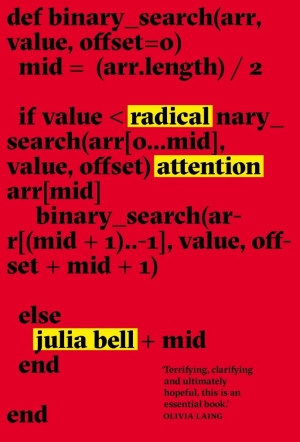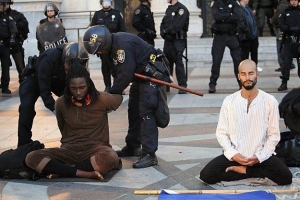
'Americonned' film review: how we're conned by capitalism in the US and Britain
Hi, my name is Brett Gregory, Associate Editor for the UK arts, culture and politics website, Culture Matters, and this is my review of Sean Claffey’s 2023 documentary, Americonned.
Throughout the 20th century Hollywood often hypnotised us with its mirages of the United States which were altogether beautiful, beguiling and bountiful, its diverse and dramatic population constantly reinventing itself as it seemingly surged as one towards the comfort and glory of the American Dream.
Sean Claffey’s documentary, Americonned, bluntly announces that that dream is now over as it charges us through an economic war set in the first quarter of 21st century North America.
Human casualties who look exactly like you and me litter the hideous housing projects in Florida, the basement apartments buried in New Jersey and the forgotten farms of Iowa, instantly reminding us of our own crumbling council estates in Newcastle, the boarded-up shops in Bolton and the bankruptcy of Birmingham City Council.
[AUDIO CLIP]
Ana (Florida): I'm looking for storage units. Next door, yesterday they put my friend out, my neighbour, and they had what I thought was a legal document, you know, to help them, you know, stay. But unfortunately, neither the sheriffs nor the management company would accept the paperwork and they, you know, kicked them out, and I don't want that to happen to me.
Elaine (Boston): With this job I'm not making enough. I have tried to apply for a loan through the SBA. That's a nightmare. I tried to apply for the PPP. They denied me for that because it was not the accurate information. I really want to give up because I'm just so tired. I don't know. I don't sleep much at night, so I just lay there and I think and I think and I think and I think, and I can't figure a way out. And I've always been able to figure a way out, and I can't. My kids literally hate me because I can't fix the problems of the world.
J. D. Scholten (Iowa): When I decided to move home several years ago, I looked in my hometown paper for a job for about a month, and the best job I could get is 15 bucks an hour and no benefits. Whether it's a McDonald's or Dollar General or whatever, they hire people for 10 / 12 bucks an hour and the profits go out of the district. That's not benefiting our society, that's not benefiting our communities. The economy isn't working for here. It benefits these multinational corporations.
[AUDIO CLIP ENDS]
Like a military dossier detailing the bombing of Dresden by Allied forces during World War II, this film manages its moral outrage with dark data that refutes the false flag of fiscal progress which is waved mechanically, and maniacally, by the mainstream media across our syndicated smart screens.
In line with the rise of workers’ productivity since the 1960s, for instance, the minimum wage should be at least $20 an hour in the US, but it isn’t, is it? Instead, it’s a sickening $7.25 an hour.
For the record, and according to the Trade Union Congress, the minimum wage in the UK should be £15 an hour, but instead it’s £11.54.
In turn, 70% of all adults who work full-time in North America have to suffer the humiliation of receiving government aid, while in the UK over 6.4 million people, including myself, are claiming Universal Credit.
Moreover, although the long-term average unemployment figures across the United States are around 5.7%, Marty Walsh, former Mayor of Boston, observes that the 6.1% unemployment rate for the black community and the 9.7% rate for the Latino community will never, ever improve.
So, where did all the money go? And what about all that hope?
Well, coincidentally, in 1987 there were 47 billionaires in the United States with a total net worth of $186 billion. In 2024 however we now have 759 billionaires with a combined wealth of – wait for it – $4.48 trillion.
Such figures, to any rational mind, are absolutely ridiculous.
It’s as if we’re playing a game of Monopoly in a locked room against Charles Manson, a machete in his right hand, a litre of tequila in his left.
But such a subhuman socio-economic state of affairs didn’t happen by accident now, did it?
Amongst other things Machiavellian men and women with incalculable capital, connections and control desired for it to be this way, they conspired for it to be this way, and they contrived for it to be this way.
But who was the original Svengali, the David Koresh, the Colonel Kurtz that first let this Wall Street savagery loose upon the streets and suburbs of California, Texas, Washington, Britain and the rest of the world?
According to Kurt Andersen, author of ‘Evil Geniuses’, and venture capitalist, Nick Hanauer:
[AUDIO CLIP]
Kurt Andersen (Author): Milton Friedman was an incredibly important figure. He was at the University of Chicago where he was at the centre of this group of libertarian economists, and they were really outside the mainstream.
Milton Friedman (Economist): Personally, of course I would get rid of social security. I've always said it was one of the great miracles of Madison Avenue packaging.
TV Interviewer: Would you do about the minimum wage law if you could?
Milton Friedman (Economist): I would abolish it.
Kurt Andersen (Author): Then in 1970 the New York Times magazine invited him to essentially summarise his beliefs in an article that they called ‘A Friedman Doctrine’.
Television Talk Show Host: Please welcome the Nobel Laureate in Economics, Milton Friedman.
[AUDIENCE APPLAUSE]
Kurt Andersen (Author): He was making the case that for businesses nothing mattered but profits. Not the well-being of your employees, not the well-being of your communities, not the well-being of the larger society. All that matters was your profits – period.
Nick Hanauer (Venture Capitalist): He was making a claim about how human economies worked. That the more selfish business executives were the better it would be for everyone, and that's what people bought. The trick of trickle-down economics is not believing that when the rich get richer that's good for the economy; the evil part is the belief that when the poor get richer that will harm the economy. And that has been the basic message of our nation's economic system for the last 40 years.
[AUDIO CLIP ENDS]
But surely there are robust constitutional and legal mechanisms in place, which have been historically drawn up to prevent such wanton ransacking of the social contract between employers and their employees, citizens and their government?
Well, unfortunately, Americonned is quick to alert us that in the United States of America, the land of free enterprise and brave opportunism, even democracy is up for sale.
[AUDIO CLIP]
Kurt Andersen (Author): So how do you change things permanently? Well, you change law, you change the way the judiciary interpret what is constitutional or not. A big way that change is made is by billionaire right-wingers giving 50 million or 100 million each to all the best law schools. And, oh, by the way, let's also start this fraternity, mafia, whatever you want to call it.
CBSN Host: So what exactly is the Federalist Society?
Eric Lipton (Pulitzer Prize-Winning Journalist): The Federalist Society got started through law schools and it's grown into an organisation that has incredible influence in the United States.
MSNBC Host: Getting conservative judges on the bench has been a project for multiple decades.
Kurt Andersen (Author): Once you get both the law and Washington lawmakers, you could make sure that those laws were going to be declared constitutional or not by judges you have essentially bred in your laboratory through the Federalist Society.
Keith Olbermann (Countdown News Host): Today the Supreme Court of Chief Justice, John Roberts, declared that corporations had all the rights of people.
Bernie Sanders (US Politician): What you have right now is the undermining of American democracy as we know it.
Keith Olbermann (Countdown News Host): There are now no checks on the ability of corporations to decide our elections. None.
[AUDIO CLIP ENDS]
Although there are many heartbreaking and humanising speeches and scenarios in Americonned that any level-headed left-winger or progressive would be engaged and enraged by, the documentary is not without its faults.
For the sake of audience inclusion and narrative drive, for instance, Jeff Bezos is crudely cast as an obscene online Ozymandias, while his Amazon workforce are portrayed as his eternally suffering Egyptian slaves.
However, this basic binary, good versus evil approach overlooks the depth and breadth of the neoliberal tech-feudalist system which now operates above, below and within all supposed civilised societies, not just the United States, and which, it could be argued, accidentally engineers egregious entities like Jeff Bezos, Elon Musk and Mark Zuckerberg.
We’re talking here about a supremely organised interconnected network of institutions whose hourly purpose is to maintain absolute power by generating trillions of dollars via the day-to-day exploitation of the world’s 8 billion citizens.
Indeed, this global complex of control is of such incomprehensible scope and strength it would take centuries of round-the-clock resistance from millions of focused, educated, dedicated and resourced activists to even begin to attempt to dismantle it, let alone hold it to account.
Yep, we’re talking here about actual international governments, their presidents, senators, prime ministers and members of parliament; non-governmental organisations like the Clinton Global Initiative and the Tony Blair Institute for Global Change; think tanks like The Center for Strategic and International Studies in the US and Chatham House in the UK; elite universities like Yale, MIT, Oxford and Cambridge; global 2000 companies like JPMorgan Chase, Saudi Aramco and China Construction Bank; pharmaceutical companies like Eli Lilly and Novo Nordisk that make our medicines; energy companies like ExxonMobil and Shell that drive our cars; chemical companies like BASF and Sinopec that clean our floors; media companies like Disney and Comcast that are supposed to entertain us; tech companies like Apple and Alphabet that definitely detain us; arms manufacturers; the military; the CIA, MI5, FBI; the police, the prison service….all protecting their – not our – trillions upon trillions of dollars.
Americonned is currently available to buy in the UK as a DVD through Amazon Prime Video. This has been the UK arts, culture and politics website, Culture Matters, and I’ve been Brett Gregory.





